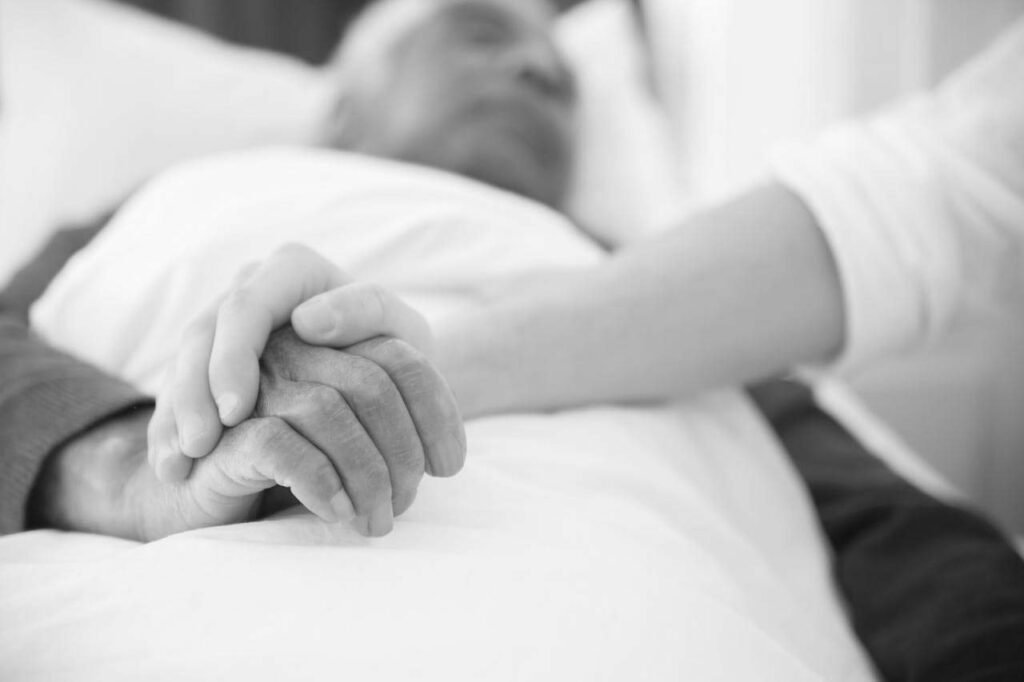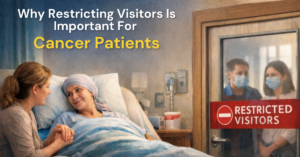Taking care of a loved one at home is both rewarding and challenging. You play a crucial role as a caregiver, whether they are recovering from illness, managing chronic conditions, or need extra assistance. You directly affect their health, comfort, and safety every day by giving them medications and monitoring their symptoms.
Moreover, providing medical patient care at home goes beyond completing daily tasks. It requires careful attention to medications, symptom changes, hygiene, and emotional wellbeing. Even small mistakes can lead to serious complications, while informed, consistent care can significantly improve recovery and overall quality of life.
Understandably, many caregivers feel uncertain or overwhelmed. Questions like “Did I give the right dose?” or “Should I call the doctor now?” are common. That’s why this guide exists. In it, you will find practical, step-by-step advice to help you provide safe, effective, and compassionate care at home.
By the end of this guide, you will learn how to:
- Organize and manage medications safely
- Monitor symptoms and recognize warning signs
- Prevent infections and complications
- Support your loved one’s emotional and physical wellbeing
- Take care of your own health as a caregiver
Ultimately, whether you are new to caregiving or have experience, this guide will give you the tools, knowledge, and confidence to provide the best care possible at home.
Table of Contents:
Why Medical Patient Care Matters
Nutrition and Lifestyle Support
Emotional Support for Patients
Why Medical Patient Care Matters
Caring for a patient at home is more than just completing daily tasks. In fact, it can directly affect their recovery and overall health. Proper care helps prevent complications, reduces hospital visits, and improves comfort.
Additionally, caregivers are often the first to notice changes in a patient’s condition. A small symptom that seems minor may indicate a serious problem. Therefore, staying vigilant and informed is essential.
Moreover, consistent medical care at home builds trust and confidence. Patients feel safer and more supported when caregivers monitor their symptoms, manage medications, and provide emotional support.
Importantly, medical patient care is not only about the patient. Caregivers who are prepared and educated can act quickly in emergencies, reduce stress, and avoid mistakes. As a result, both the patient and caregiver experience better outcomes.
In short, medical patient care at home matters because it prevents complications, supports recovery, and ensures safety. With proper knowledge and tools, caregivers can provide care that truly makes a difference.
Medication Management
One of the most important roles of a caregiver is managing medications. The right dose at the right time can prevent complications and improve recovery. However, mistakes are common and can be dangerous.
To start, keep a clear medication schedule. Use a pillbox, chart, or app to track doses. This way, you reduce the risk of missed or double doses.
Make sure you double-check the medication before giving it to the patient. Read the label carefully and confirm the correct dose. Remember, even small errors can have serious consequences. Additionally, keep medications in a safe place. Keep them out of reach of children and away from heat or moisture. Proper storage maintains effectiveness and prevents accidents. Do not stop or alter medication without consulting your doctor, even if a patient feels better. Altering the schedule can harm recovery.
In short, safe medication management is essential. By organizing medications, double-checking doses, and following medical guidance, caregivers can protect their loved ones and provide confident care.
To start improving medication routines today, explore full Medication Management Guide.
Monitoring Symptoms
Monitoring symptoms is a key part of caregiving. An early detection of problems can prevent complications and save lives. Even small changes in a patient’s condition may signal a serious issue.
Observe daily patterns, track energy levels, appetite, sleep, and mobility. This way, you notice subtle changes before they become serious.
Next, pay attention to vital signs. Monitor temperature, pulse, blood pressure, and breathing if relevant. Keeping records helps both you and the doctor understand the patient’s progress.
Additionally, watch for unusual symptoms. These may include sudden pain, swelling, confusion, dizziness, or mood changes. If any warning signs appear, note the time and severity, and contact the healthcare provider when necessary.
Using a notebook or an app makes tracking easier. By recording observations, you can provide accurate information during doctor visits and avoid miscommunication.
In short, careful monitoring of symptoms helps caregivers respond quickly. With attention and records, you can support recovery, prevent complications, and provide safer care at home.
When to Call a Doctor
Caregivers often wonder when a situation requires medical help. Sometimes, it is safe to wait and observe; Other times, quick action is essential. Knowing the difference can protect your loved one’s health.
Call a doctor right away if you notice:
- High fever that does not go down
- Severe chest pain or shortness of breath
- Sudden weakness, numbness, or trouble speaking
- Uncontrolled bleeding
- Confusion, dizziness, or fainting
- Severe or unusual pain
- Rapid swelling or infection at a wound site
In addition, contact the doctor if symptoms suddenly get worse. For example, if diabetes, asthma, or high blood pressure seem harder to control. Furthermore, do not hesitate to ask questions. If you feel unsure about a symptom or medication, it is always safer to check with a professional. Trust your instincts as a caregiver—you know your loved one best.
For a complete checklist, see our detailed guide: “When to Call a Doctor: A Practical Caregiver Checklist.”
In short, calling a doctor at the right time prevents complications and saves lives. By staying alert and responding quickly, caregivers provide essential protection for their loved ones.
Infection Prevention at Home
Infections are a serious risk for people with chronic illnesses or weak immune systems. At home, simple steps can lower that risk. As a caregiver, your actions play a vital role in protecting your loved one.
First, wash your hands often. Do this before giving medications, preparing food, or helping with personal care. Hand hygiene is the easiest way to stop germs.
Next, keep the wounds clean and covered. Change dressings as advised by the doctor. Always use clean supplies and follow all safe handling steps.
Additionally, clean shared surfaces such as doorknobs, tables, and light switches. Regular disinfection reduces germ spread.
Encourage appropriate nutrition and hydration. A strong immune system fights infections more effectively. Along with this, make sure your loved one gets enough rest.
Watch closely for early signs of infection. These may include fever, redness, swelling, cough, or unusual fatigue. If you notice them, contact the doctor quickly.
In short, infection prevention at home requires hygiene, nutrition, and alertness. With simple daily steps, caregivers can protect patients from unnecessary illness.
Learn more: Infection Control.
Nutrition and Lifestyle Support
A healthy lifestyle is a key part of recovery. Good nutrition and daily routines help the body heal and improve overall well-being. As a caregiver, you can guide your loved one toward better habits.
Start with balanced meals. Include fruits, vegetables, lean proteins, and whole grains. This way, the patient gets the vitamins and energy needed for strength.
If appetite is low, offer small and frequent meals. Soft or easy-to-digest foods may be more comfortable. Encouraging hydration is equally important—water, soups, or herbal teas help keep the body strong.
Next, support gentle physical activity, if approved by the doctor. Short walks, stretching, or light exercises improve circulation and mood. Regular movement, even in small amounts, prevents stiffness and boosts recovery.
Sleep is also crucial, so encourage a calm bedtime routine and a quiet environment. Rest helps the body repair itself.
Finally, try to reduce stress whenever possible. Practicing breathing exercises, listening to music, or engaging in hobbies can promote emotional balance and comfort. A calm mind leads to a stronger body.
In short, nutrition and lifestyle choices are powerful tools for healing. With balanced meals, hydration, rest, and gentle activity, caregivers can greatly improve the patient’s quality of life.
Emotional Support for Patients
Illness affects more than the body. In many cases, patients struggle with fear, sadness, or frustration. That is why emotional support is just as important as medical care.
Begin by listening. Give your loved one space to share feelings without interruption or judgment. Sometimes, being heard is the best comfort.
Next, offer encouragement. Simple words like “You’re doing great” or “I’m proud of you” can lift spirits. Positive reassurance helps patients feel stronger and more hopeful. Involve them in small daily choices. Picking meals, clothing, or activities gives a sense of control. Even small decisions restore dignity and independence.
Encourage hobbies and light activities. Music, reading, and gentle crafts can bring joy and distract from stress. A small pleasure can brighten a day.
Last but not least, respect quiet moments. There are times when patients need space to process their emotions. By showing patience and understanding, you create a safe, supportive environment. In short, emotional care builds trust and resilience. With kindness, encouragement, and patience, caregivers can ease fear and bring comfort during illness.
Caregiver Self-Care
Caring for someone else can be exhausting. In fact, many caregivers focus so much on their loved ones that they forget their own needs. However, your health matters too. Without it, you cannot provide the best care.
First, take short breaks during the day. Even a few minutes of rest can lower stress and clear your mind. Remember, small pauses make a big difference.
Next, eat healthy meals and stay hydrated. Skipping food or relying on quick snacks drains energy. Good nutrition fuels both body and mind.
Sleep is vital. Try to keep a regular bedtime, and ask family or friends to help if you need rest. A well-rested caregiver is more alert and patient.
Additionally, do not hesitate to ask for support. Share tasks with family members or seek help from community resources. Caregiving is not a one-person job.
Finally, pay attention to your emotions. Stress, sadness, or burnout are signals that you need care too. Talking to a friend, counselor, or support group can ease the burden.
In short, caregiver self-care is not selfish; it is essential. By protecting your own health, you can continue giving safe and compassionate care to your loved one.
Read more: Caregiver Burnout: How to Protect Your Health.
Key Takeaways
Caring for a medical patient at home is both a challenge and a responsibility. With the right knowledge, caregivers can make a huge difference in recovery and comfort.
Remember these essentials:
- Manage medications safely
- Monitor health changes closely
- Call a doctor when symptoms are serious
- Prevent infections through hygiene and alertness
- Support healing with good nutrition and rest
- Offer emotional encouragement daily
- Protect your own health as a caregiver
In conclusion, medical patient care at home is about safety, awareness, and compassion. With the right skills and knowledge, caregivers can give loved ones the best chance at recovery and comfort.
Most importantly, you do not have to do it perfectly. You only need to do it with care, consistency, and love. That is what makes the real difference.
FAQs
Medical patient care at home means supporting a loved one with a medical condition outside the hospital. It includes giving medicines, monitoring symptoms, preventing infection, and providing emotional support.
Caregivers can use a pillbox, set reminders, keep a clear medication chart, and double-check doses before giving. They should never change or stop medication without a doctor’s advice.
Caregivers should call a doctor if the patient has high fever, chest pain, breathing difficulty, sudden weakness, confusion, or uncontrolled bleeding.
Caregivers should take breaks, eat healthy meals, rest, and ask for support from family or caregiver groups. Self-care prevents burnout.






